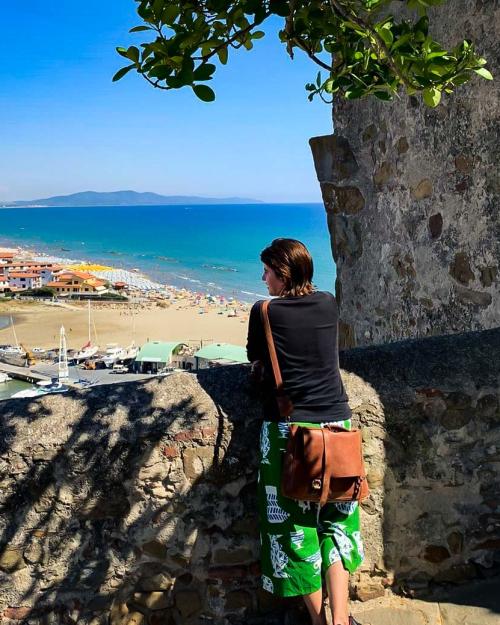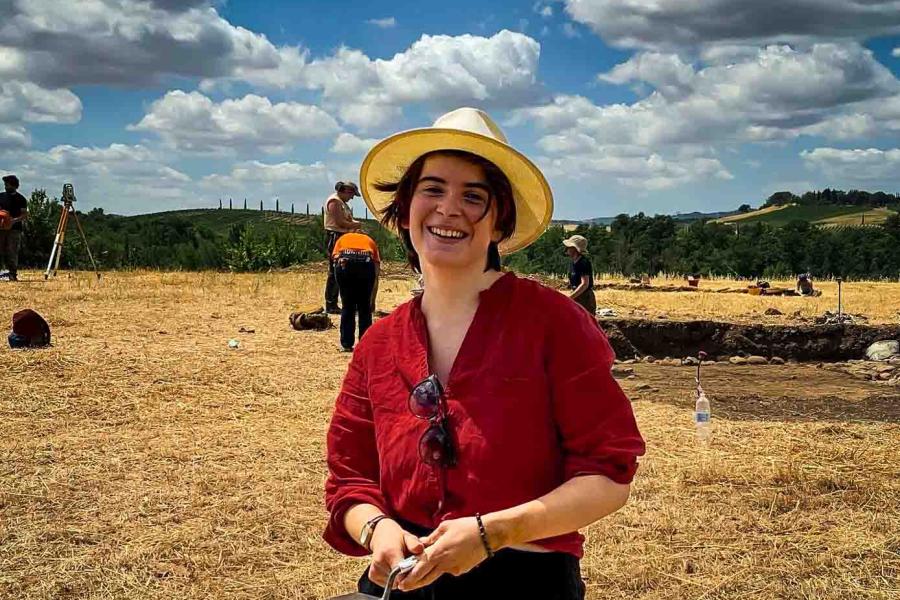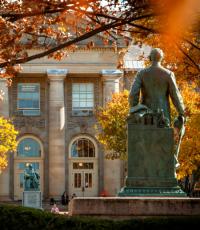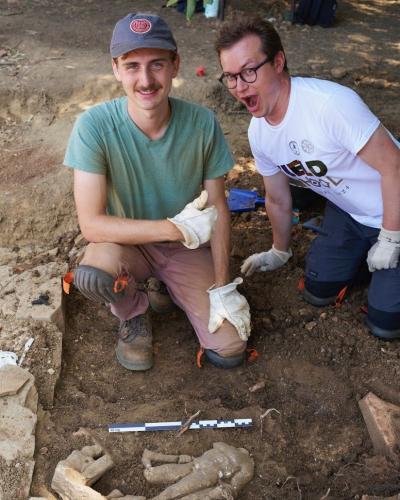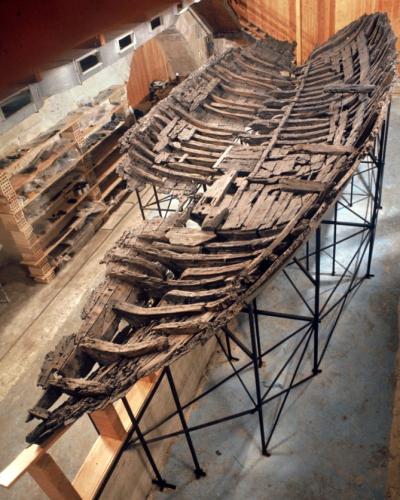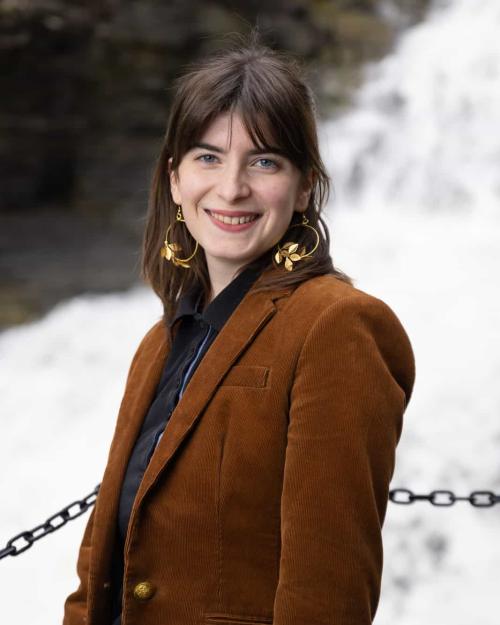Charlee Mandy
Archaeology & Classics
Medford, N.J.
Why did you choose Cornell?
I chose Cornell, and A&S in particular, because I saw an exciting flexibility for growth and exploration. I came in as an astronomy major with my heart fixed on studying possibilities for life
on other planets, and to my own surprise, I’ve ended up studying antiquity — in particular ancient Roman archaeology — and excavating at the Marzuolo Archaeological Project (MAP) in Tuscany. I knew in high school that the trajectory of my studies would change and evolve with me, and Cornell has proved a great environment for that growth. Another important aim for me from the get-go was studying abroad, and it was indeed super feasible to spend my junior spring at the Intercollegiate Center for Classical Studies in Rome, an experience that affirmed my continued study of the ancient world and introduced me to a city I hope to call home again.
What Cornell memory do you treasure the most?
A huge part of my time at Cornell has been affected, but not wholly defined, by the pandemic. My friends were really what got me through the uncertainty and inertia of that time period, as well as having consistently kind professors who did their best to make class engaging, despite being online. One bizarre memory that I will always look back on fondly, even when campus was deserted, was my friends and I going into large, empty lecture halls on Friday nights and watching movies on the big screen, just to cheer ourselves. One time we were startled to see Touchdown the Bear burst into our Goldwin Smith lecture hall at 10 p.m. He even did a little dance to show his approval (we assumed) of the show we were watching.
What have you accomplished as a Cornell student that you are most proud of, either inside the classroom or otherwise?
I am proud of my work as a Humanities Scholar, getting to meet and learn with students and faculty studying a fascinating range of subjects. Through the Humanities Scholars Program and archaeology department, I am about to submit and present on my senior honors thesis, titled "At Hearths and Thresholds: The Religious Lives of Slaves in Pompeiian Households," a project that grapples with synthesizing material and textual evidence of the lives of enslaved people with the sensorial and the possible. It has been a challenging but exciting learning experience that has defined the last few months of my time at Cornell. Finally, I am also proud of my work as a tutor at the Cornell Writing Center; I've learned so much about pedagogy, writing and a huge range of topics that the students I tutor are learning about. I would recommend the job to anyone who enjoys writing and working with a diverse community of peers to uplift their voices as writers and thinkers.
If you were to offer advice to an incoming first year student, what would you say?
Don't be afraid to radically change direction. College is not so much a process of self-discovery as it is self-definition. You are just beginning to learn and create the vocabulary with which to do that, and that definition will never be static. You will never stop changing for all of your undergraduate career and beyond. Embrace the directions that your interests take you, and put in the time to forge strong connections with mentors and wider communities that will empower you and help you grow. And, finally — don't forget to rest. It's easy to feel like so much is expected of you, so when you can, pause and make space for daily routines that bring you comfort. Call a friend and make them laugh. Put on the kettle. Make a cup of tea.
What are your plans for next year?
In the fall, I will be starting my first year at Columbia's Classical Studies Ph.D. program, where I am excited to continue studying Roman material culture and social history. Specifically, in graduate research I hope to continue an emphasis on intersections of religion with enslaved and non-elite people, as well as freedpeople at other levels of status.

